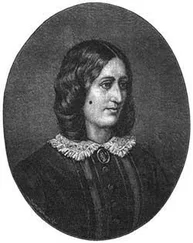Джордж Элиот - Scenes of Clerical Life
Здесь есть возможность читать онлайн «Джордж Элиот - Scenes of Clerical Life» — ознакомительный отрывок электронной книги совершенно бесплатно, а после прочтения отрывка купить полную версию. В некоторых случаях можно слушать аудио, скачать через торрент в формате fb2 и присутствует краткое содержание. Жанр: foreign_antique, Религиозная литература, foreign_religion, на английском языке. Описание произведения, (предисловие) а так же отзывы посетителей доступны на портале библиотеки ЛибКат.
- Название:Scenes of Clerical Life
- Автор:
- Жанр:
- Год:неизвестен
- ISBN:нет данных
- Рейтинг книги:5 / 5. Голосов: 1
-
Избранное:Добавить в избранное
- Отзывы:
-
Ваша оценка:
- 100
- 1
- 2
- 3
- 4
- 5
Scenes of Clerical Life: краткое содержание, описание и аннотация
Предлагаем к чтению аннотацию, описание, краткое содержание или предисловие (зависит от того, что написал сам автор книги «Scenes of Clerical Life»). Если вы не нашли необходимую информацию о книге — напишите в комментариях, мы постараемся отыскать её.
Scenes of Clerical Life — читать онлайн ознакомительный отрывок
Ниже представлен текст книги, разбитый по страницам. Система сохранения места последней прочитанной страницы, позволяет с удобством читать онлайн бесплатно книгу «Scenes of Clerical Life», без необходимости каждый раз заново искать на чём Вы остановились. Поставьте закладку, и сможете в любой момент перейти на страницу, на которой закончили чтение.
Интервал:
Закладка:
Mr. Ely threw himself with a sense of relief into his easiest chair, set his feet on the hobs, and in this attitude of bachelor enjoyment began to read Bishop Jebb's Memoirs.
Chapter 4
I am by no means sure that if the good people of Milby had known the truth about the Countess Czerlaski, they would not have been considerably disappointed to find that it was very far from being as bad as they imagined. Nice distinctions are troublesome. It is so much easier to say that a thing is black, than to discriminate the particular shade of brown, blue, or green, to which it really belongs. It is so much easier to make up your mind that your neighbour is good for nothing, than to enter into all the circumstances that would oblige you to modify that opinion.
Besides, think of all the virtuous declamation, all the penetrating observation, which had been built up entirely on the fundamental position that the Countess was a very objectionable person indeed, and which would be utterly overturned and nullified by the destruction of that premiss. Mrs. Phipps, the banker's wife, and Mrs. Landor, the attorney's wife, had invested part of their reputation for acuteness in the supposition that Mr. Bridmain was not the Countess's brother. Moreover, Miss Phipps was conscious that if the Countess was not a disreputable person, she, Miss Phipps, had no compensating superiority in virtue to set against the other lady's manifest superiority in personal charms. Miss Phipps's stumpy figure and unsuccessful attire, instead of looking down from a mount of virtue with an aureole round its head, would then be seen on the same level and in the same light as the Countess Czerlaski's Diana-like form and well-chosen drapery. Miss Phipps, for her part, didn't like dressing for effect—she had always avoided that style of appearance which was calculated to create a sensation.
Then what amusing innuendoes of the Milby gentlemen over their wine would have been entirely frustrated and reduced to nought, if you had told them that the Countess had really been guilty of no misdemeanours which demanded her exclusion from strictly respectable society; that her husband had been the veritable Count Czerlaski, who had had wonderful escapes, as she said, and who, as she did not say, but as was said in certain circulars once folded by her fair hands, had subsequently given dancing lessons in the metropolis; that Mr. Bridmain was neither more nor less than her half-brother, who, by unimpeached integrity and industry, had won a partnership in a silk-manufactory, and thereby a moderate fortune, that enabled him to retire, as you see, to study politics, the weather, and the art of conversation at his leisure. Mr. Bridmain, in fact, quadragenarian bachelor as he was, felt extremely well pleased to receive his sister in her widowhood, and to shine in the reflected light of her beauty and title. Every man who is not a monster, a mathematician, or a mad philosopher, is the slave of some woman or other. Mr. Bridmain had put his neck under the yoke of his handsome sister, and though his soul was a very little one—of the smallest description indeed—he would not have ventured to call it his own. He might be slightly recalcitrant now and then, as is the habit of long-eared pachyderms, under the thong of the fair Countess's tongue; but there seemed little probability that he would ever get his neck loose. Still, a bachelor's heart is an outlying fortress that some fair enemy may any day take either by storm or stratagem; and there was always the possibility that Mr. Bridmain's first nuptials might occur before the Countess was quite sure of her second. As it was, however, he submitted to all his sister's caprices, never grumbled because her dress and her maid formed a considerable item beyond her own little income of sixty pounds per annum, and consented to lead with her a migratory life, as personages on the debatable ground between aristocracy and commonalty, instead of settling in some spot where his five hundred a-year might have won him the definite dignity of a parochial magnate.
The Countess had her views in choosing a quiet provincial place like Milby. After three years of widowhood, she had brought her feelings to contemplate giving a successor to her lamented Czerlaski, whose fine whiskers, fine air, and romantic fortunes had won her heart ten years ago, when, as pretty Caroline Bridmain, in the full bloom of five-and-twenty, she was governess to Lady Porter's daughters, whom he initiated into the mysteries of the pas de bas , and the lancers' quadrilles. She had had seven years of sufficiently happy matrimony with Czerlaski, who had taken her to Paris and Germany, and introduced her there to many of his old friends with large titles and small fortunes. So that the fair Caroline had had considerable experience of life, and had gathered therefrom, not, indeed, any very ripe and comprehensive wisdom, but much external polish, and certain practical conclusions of a very decided kind. One of these conclusions was, that there were things more solid in life than fine whiskers and a title, and that, in accepting a second husband, she would regard these items as quite subordinate to a carriage and a settlement. Now, she had ascertained, by tentative residences, that the kind of bite she was angling for was difficult to be met with at watering-places, which were already preoccupied with abundance of angling beauties, and were chiefly stocked with men whose whiskers might be dyed, and whose incomes were still more problematic; so she had determined on trying a neighbourhood where people were extremely well acquainted with each other's affairs, and where the women were mostly ill-dressed and ugly. Mr. Bridmain's slow brain had adopted his sister's views, and it seemed to him that a woman so handsome and distinguished as the Countess must certainly make a match that might lift himself into the region of county celebrities, and give him at least a sort of cousinship to the quarter-sessions.
All this, which was the simple truth, would have seemed extremely flat to the gossips of Milby, who had made up their minds to something much more exciting. There was nothing here so very detestable. It is true, the Countess was a little vain, a little ambitious, a little selfish, a little shallow and frivolous, a little given to white lies.—But who considers such slight blemishes, such moral pimples as these, disqualifications for entering into the most respectable society! Indeed, the severest ladies in Milby would have been perfectly aware that these characteristics would have created no wide distinction between the Countess Czerlaski and themselves; and since it was clear there was a wide distinction—why, it must lie in the possession of some vices from which they were undeniably free.
Hence it came to pass that Milby respectability refused to recognize the Countess Czerlaski, in spite of her assiduous church-going, and the deep disgust she was known to have expressed at the extreme paucity of the congregations on Ash-Wednesdays. So she began to feel that she had miscalculated the advantages of a neighbourhood where people are well acquainted with each other's private affairs. Under these circumstances, you will imagine how welcome was the perfect credence and admiration she met with from Mr. and Mrs. Barton. She had been especially irritated by Mr. Ely's behaviour to her; she felt sure that he was not in the least struck with her beauty, that he quizzed her conversation, and that he spoke of her with a sneer. A woman always knows where she is utterly powerless, and shuns a coldly satirical eye as she would shun a Gorgon. And she was especially eager for clerical notice and friendship, not merely because that is quite the most respectable countenance to be obtained in society, but because she really cared about religious matters, and had an uneasy sense that she was not altogether safe in that quarter. She had serious intentions of becoming quite pious—without any reserves—when she had once got her carriage and settlement. Let us do this one sly trick, says Ulysses to Neoptolemus, and we will be perfectly honest ever after—
Читать дальшеИнтервал:
Закладка:
Похожие книги на «Scenes of Clerical Life»
Представляем Вашему вниманию похожие книги на «Scenes of Clerical Life» списком для выбора. Мы отобрали схожую по названию и смыслу литературу в надежде предоставить читателям больше вариантов отыскать новые, интересные, ещё непрочитанные произведения.
Обсуждение, отзывы о книге «Scenes of Clerical Life» и просто собственные мнения читателей. Оставьте ваши комментарии, напишите, что Вы думаете о произведении, его смысле или главных героях. Укажите что конкретно понравилось, а что нет, и почему Вы так считаете.










